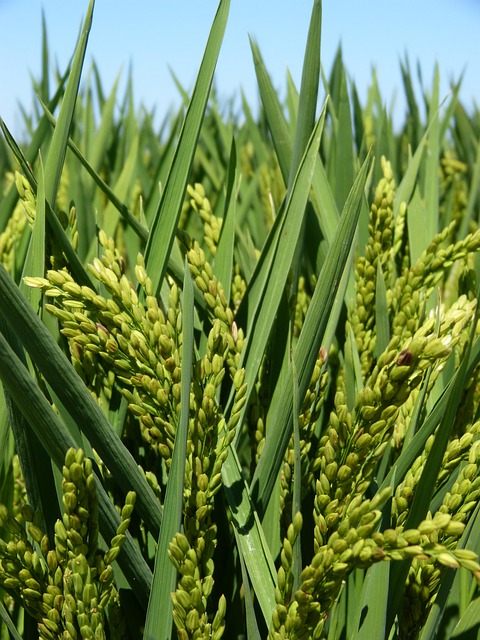Delta-9 THC and cannabidiol (CBD) are contrasting compounds found in cannabis. Delta-9 offers a psychoactive "high" with varied effects on perception, mood, and sensory experiences, while CBD lacks intoxicating properties and interacts with the body's endocannabinoid system to regulate various functions. Both have therapeutic potential, with CBD gaining popularity for stress relief and pain management without mental side effects. Informed choices between Delta-9 and CBD should consider personal tolerance, desired outcomes, and expert advice, ensuring safe and effective use of these unique compounds.
“Unravel the debate between Delta-9 THC and CBD with our comprehensive guide. Delta-9, renowned for its psychoactive effects, offers a familiar high but comes with considerations regarding tolerance and potential risks. In contrast, CBD, a non-intoxicating compound, provides a natural alternative with diverse benefits.
We delve into the science behind these compounds, comparing their effects, legalities, and suitable applications. Whether you’re a newcomer or a connoisseur, this article ensures you make an informed choice, helping you navigate the world of Delta-9 vs CBD.”
- Understanding Delta-9 THC: Effects and Considerations
- Exploring CBD: Its Unique Properties and Benefits
- Comparing the Two: Key Differences and Similarities
- Making an Informed Choice: Finding Your Preferred Option
Understanding Delta-9 THC: Effects and Considerations

Delta-9 THC, often simply referred to as Delta-9, is the primary psychoactive compound found in cannabis. It’s what gives users that signature “high” feeling. Understanding its effects and considerations is crucial when deciding whether Delta-9 is right for you. The impact of Delta-9 can vary greatly depending on individual tolerance, the amount consumed, and method of ingestion. Common short-term effects include altered perception, increased heart rate, and heightened sensory experiences. Some users appreciate the euphoric sensations and relaxation it provides, while others may experience anxiety or paranoia. Long-term use has been linked to potential cognitive and mental health impacts, especially in adolescents and young adults. It’s essential to consider your current mental and physical state, as well as any personal or professional responsibilities, before incorporating Delta-9 into your routine.
Exploring CBD: Its Unique Properties and Benefits

Cannabidiol, or CBD, is a non-psychoactive compound derived from the cannabis plant. Unlike its more well-known cousin, delta-9 tetrahydrocannabinol (Delta-9), CBD doesn’t produce a ‘high’ but offers a range of potential therapeutic benefits. It interacts with our body’s endocannabinoid system, which plays a role in regulating mood, appetite, sleep, and pain perception.
One of the unique properties of CBD is its anti-inflammatory and antioxidant effects. It has been studied for its potential in managing various conditions, including anxiety, chronic pain, and even certain skin issues. Many people turn to CBD as a natural alternative for relief without the mind-altering effects of Delta-9. Its growing popularity in the wellness industry reflects the interest in harnessing its calming and potentially healing properties.
Comparing the Two: Key Differences and Similarities

Delta-9 THC and CBD are both compounds found in cannabis plants, but they have distinct characteristics that set them apart. While Delta-9 is known for its psychoactive effects, causing a sense of euphoria and altering perception, CBD (Cannabidiol) does not produce any intoxicating effects. This makes it a popular choice for individuals seeking the potential therapeutic benefits of cannabis without the high.
In terms of their interactions with the body’s endocannabinoid system, they differ significantly. Delta-9 binds directly to CB1 receptors in the brain, leading to its psychotropic properties, whereas CBD interacts indirectly by influencing the production and activity of endocannabinoids, which can help regulate mood, memory, and pain perception. Despite these differences, both compounds share some similarities. They are both non-toxic and have low potential for addiction. Moreover, research suggests they may even enhance each other’s effects when consumed together in specific ratios.
Making an Informed Choice: Finding Your Preferred Option

Making an informed choice between Delta-9 and CBD involves understanding their unique properties and effects. Delta-9 THC, the primary psychoactive compound in cannabis, offers a range of therapeutic benefits but comes with potential side effects like heightened anxiety or paranoia in some users. On the other hand, CBD (Cannabidiol) is non-psychoactive and has gained popularity for its potential to alleviate stress, pain, and inflammation without causing any intoxicating effects.
When deciding which option is right for you, consider your desired outcomes and personal tolerance. If you seek a more relaxed state without mental cloudiness, CBD might be the preferred choice. However, if you’re looking for specific medicinal benefits associated with Delta-9’s potent effects, such as appetite stimulation or chronic pain relief, further research and consultation with a healthcare professional could help guide your decision.
When deciding between Delta-9 THC and CBD, understanding their distinct profiles is key. Delta-9 offers potent psychological effects, ideal for recreational or symptomatic relief, while CBD provides a broader range of benefits without psychoactive properties, making it suitable for various wellness needs. Choosing the right option depends on your preferences and desired outcomes. Consider your goals, tolerance, and any specific health concerns to make an informed choice between these two popular compounds in the ever-growing cannabis market.
